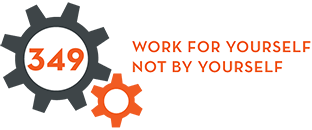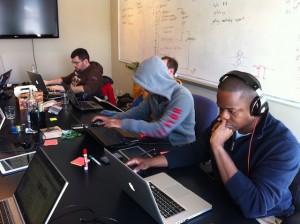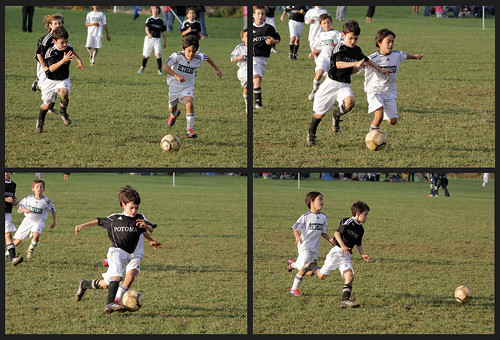In this series of posts we’re “grilling” the mentors of the Startupify program with the hope of discovering who is best able to answer a standardized set of questions. Points for accuracy and un-originality will be assigned. Actually we’re just trying to learn more about them .. the kind of stuff that doesn’t appear in boilerplate bios.
Let’s get going and welcome our first contestant: Brett Shellhammer
What qualifies you to be a Startupify mentor?
Over the last 3 years I have been an Executive in Residence with Communitech in Waterloo and the UW VeloCity program. I have seen over 200 startup plans & pitches. I have mentored or advised 50 to 75 of those startups directly.
I have a good network of contacts and connections in the GTA for startup resources from mentors, to programs to service providers
I co-founded my own startup, Organimi, in March 2012 and am living the startup life everyday.
Over my 25 year career I have worked in both large companies and startups or early stage technology companies. Organimi is my 7th startup/early stage company, but the first one that I’ve founded.
I spent 17 years in Silicon Valley where I’ve worked in both large companies and startups.
What hurdles/failures/lessons have you encountered along your professional journey that early stage entrepreneurs could learn from?
Many, many, many failures and lessons learned. I often use the phrase that “experience is what you get when you do NOT get what you want” and I have a LOT of experience.
I have found that “other people’s experiences” are not really that helpful for entrepreneurs as it is often the experience itself that causes the learning. My philosophy is not to “tell” an entrepreneur what they should do or how they should do it but to help the entrepreneur understand what to look for and how to recognize the patterns that emerge that can indicate problems and approaching failures. How the entrepreneur handles and learns from the problems and failures is what makes them succeed or give up.
As a mentor, I help steer entrepreneurs toward the brick walls they must get through, because the sooner they can overcome the biggest obstacles in their way, the sooner they can be successful.
What excites you most about the Startupify program?
I believe that the Startupify program is unique in that it is very complementary to all of the work that is going on in Ontario to help startups succeed and thrive. The Startupify program will help its participants prepare for startup life in a safe and supportive environment. The program will also prepare the participants to leverage all of the existing resources and as they exit Startupify they will be very prepared to engage and leverage the help available to them as they move to the next level of programs in the province.
I am also excited about Startupify participants coming in with the engineering & technical skill to create amazing new things because that is how I came to startup life. Starting out as a software developer then becoming a product manager then becoming a general manager and eventually an entrepreneur was a long process, and if we can help to shorten that process, that will be great.
The question I have been asked the most over the last three years is “do you know any really good technical co-founders?” so it is exciting that Startupify will be able to increase the supply of technical co-founders to meet the demand.
What characteristics have you seen in the startups you’ve mentored in the past that you feel are indicators for success?
One of the most important characteristics of successful startups that I have seen is “seriousness” and the complete belief in their products ability to solve problems and provide value to customers.
“Seriousness” also means that they understand how much hard work is in front of them and are determined every day to succeed. The ability to manage the “worry” and “self-doubt” that comes with every startup in a way that understands the risks and at the same time is not defined by them.
At the same time a sense of humor and the ability to not take one’s self too seriously while still operating the business seriously are great qualities.
BONUS: Which Startupify mentor are you most excited to collaborate with and why?
All of them! It has been a great experience so far in working with Brydon, Scott, Mike, Dave, Lisa, David and Candace in putting the program and curriculum together and the varied experience set of the group will be extremely valuable to the cohort.
I had the good fortune of working as an early mentor with the VidYard team a couple of years ago and have been a big fan of Mike Litt and Devon Galloway since that time. Mike has a way of inspiring young entrepreneurs through his experiences and attitude that I have rarely seen so that will be a great benefit to the cohort.
I have also had the pleasure of working closely with Mike Kirkup through all of 2012 and applying the things that he championed for the VeloCity program will be very valuable for the participants. In addition Mike is probably one of the top 10 guys in the world when it comes to building a partner ecosystem for a startup and that can be the difference between a world changing company and an “also ran”.
I’ve only met Mark Rodford once, but am really looking forward to working with him as well.






 We turned a particular corner with
We turned a particular corner with 



